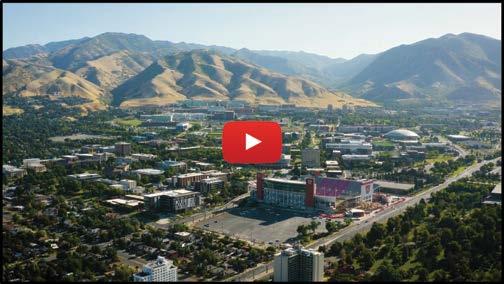UNIVERSITY OF UTAH COLLEGE OF SOCIAL WORK
Meet Interim Dean Philip Osteen
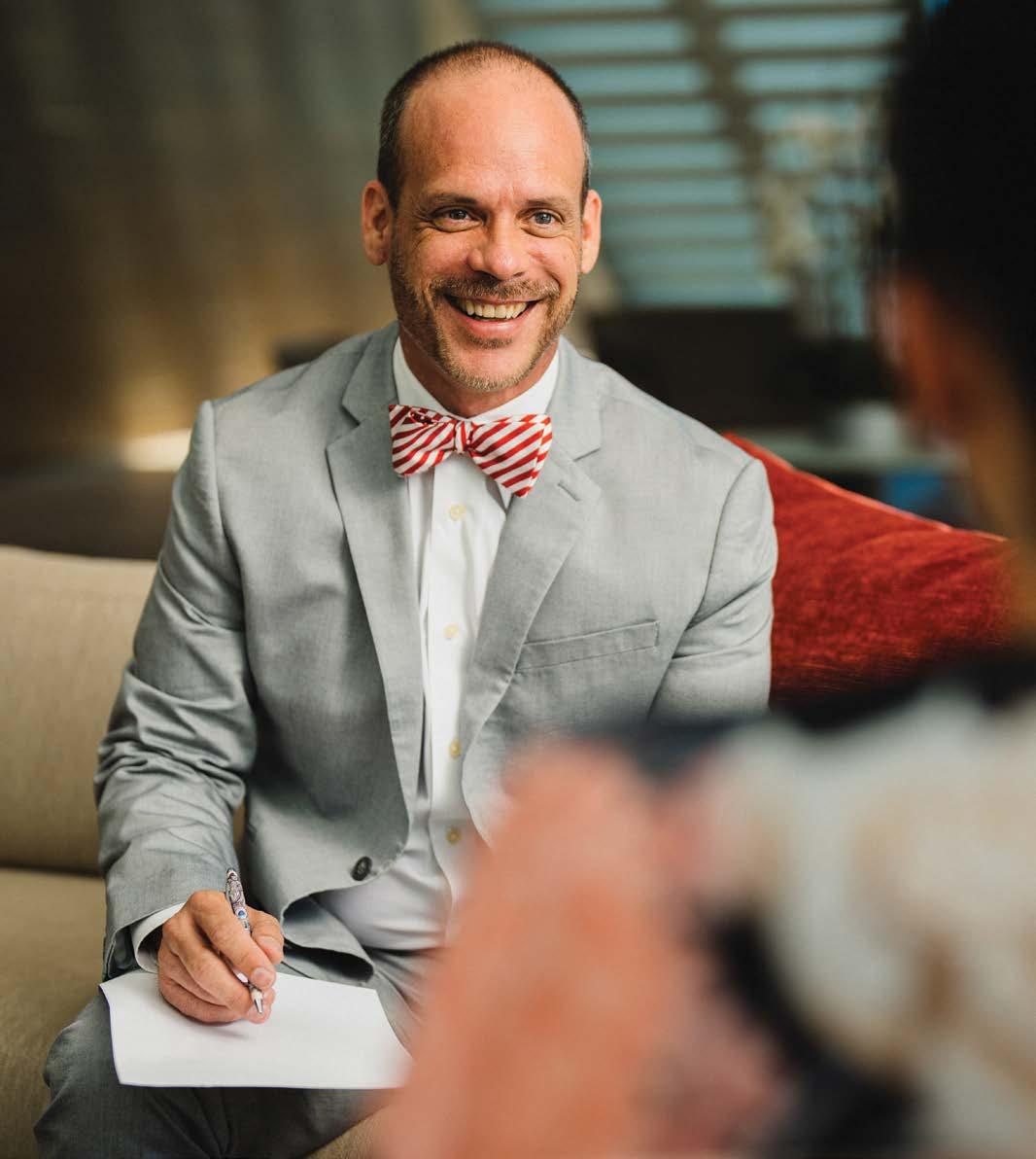
SOCIALWORK.UTAH.EDUmatters SOCIAL WORK THE
2022 – 2023
FEATURES
Interim Dean Philip Osteen
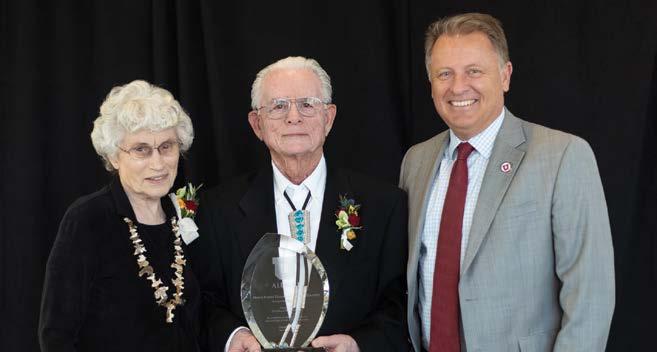
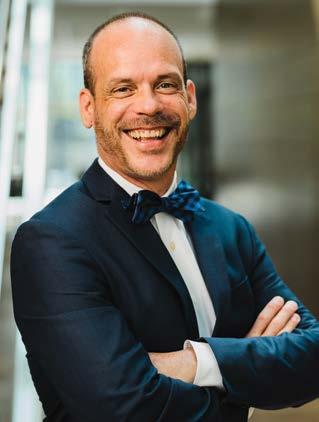
His big ideas for the sustainable growth of the College
Liz Saintz
Supporting community agencies through implementation science

Julie Watkins

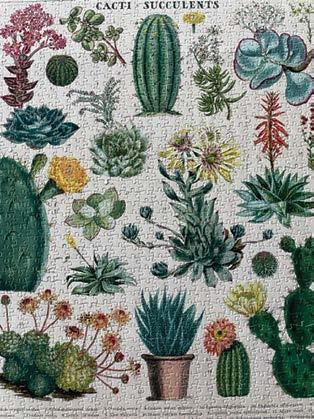
How the globetrotting grad has made a difference from micro to macro, and everywhere in-between
3 From the Dean
Social Work News
Faculty Updates
Donors
10
14
16
CONTENTS
4
6
18
10 14 18 5 2022 – 2023 16
SOCIAL WORK matters
The University of Utah College of Social Work 2022-2023
Interim Dean Philip Osteen, PhD, MSW
Editor Jennifer Nozawa
Art Direction University Marketing & Communications Contributing Writers Bethany Bingham Emily Breen Stephanie Dawson Pack Lisa Himonas Jennifer Nozawa Philip Osteen Danielle Thomsen
Contributing Editor Lisa Goldstein Kieda
Contributing Photographers include Stephanie Dawson Pack Austen Diamond Lisa Himonas iStock MigPxl Jennifer Nozawa Dave Titensor
Social Work Matters is published annually by the University of Utah College of Social Work socialwork.utah.edu
A Message from the Dean
My predecessor, Martell Teasley, often said we are a college on the move. In late December, the University of Utah’s President Taylor Randall asked him to serve as the U’s interim senior vice president for academic affairs. Accepting the appointment, Dr. Teasley asked me to serve as the College of Social Work’s interim dean. In the 10 months since I moved into the dean’s office, I have learned just how “on the move” we truly are.
scholarships in direct support of those students. Every one of these pieces is critical.
Engage with us!
Facebook Facebook.com/UtahSocialWork
Twitter Twitter.com/USocialWork Instagram Instagram.com/USocialWork
Early on, I had the pleasure of celebrating our latest U.S. News & World Report ranking of number 28, moving us up into the top 10% of MSW programs in the nation. Since then, I have been delighted to meet many new people—some with decades-long ties to the College, and others who have only recently begun to engage with to the work we do. I have learned a lot about the needs of our commu nity; about the partnerships we can continue to strengthen and those we can work to build.
And I have developed a much deeper appreci ation for all those who choose to support our students and our work in a myriad of ways.
In recent years, we’ve seen significant increases in research infrastructure and funding in the College. Our state legislature has committed ongoing dollars to help us hire more faculty and serve more students, and our donors have stepped up to help us offer more

Since taking on this new role, I have had to become more comfortable with the inev itability of change. Yet, I feel confident I can offer this assurance: we will continue to move ahead, continue to grow our research output, and continue to strengthen our face-to-face and online academic programs. We will make important changes to our curriculum, and we will add new faculty who will bring new knowledge and experiences. We will ensure our community partners know how critical they are to our success, and we will recommit to responding to their needs and actively engaging them in our field educa tion, classroom instruction, research, and continuing education offerings. The founda tion supporting all this is a commitment to some big IDEAS: inclusion, diversity, equity, accessibility, and sustainability.
I am energized by where we are headed, and inspired by those who will partner with us along the way. I hope you will join us as well.
Philip Osteen, PhD, MSW
Interim Dean

3SOCIAL WORK MATTERS FROM THE DEAN
Interim Dean Philip Osteen thanked donors for supporting students, research, and programs during the College’s 2022 dinner honoring donors and scholarship recipients.
Student Stories
dedication to increasing awareness about water poverty as a form of social injus tice is evidence of bright futures ahead for these students. Their passion for change will contribute to improved lives of many Utahns.” These students are dedicated to ensuring this project is supported by social work students in the future, and have laid the groundwork for a partnership with the Natural History Museum of Utah to showcase the plumbing equipment used in the installations from DigDeep.
Decolonizing Bookshelves, Decolonizing Minds

Students Help with Navajo Nation Water Crisis
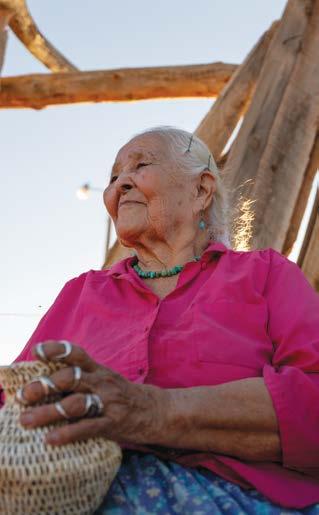
When seeking a topic for Associate Professor Sarah Canham’s social justice seminar class, Master of Social Work (MSW) students Alannah Clay, Jessie Welch-Stockton, and Mimi Landeros settled on a collaborative project with the nonprofit organization DigDeep, after learning the Navajo Nation was expe riencing a water crisis. The students’ goal was to raise awareness and create resources for the Navajo Water Project, which provides clean water and indoor plumbing to Navajo homes. To accomplish this, the students did an analysis of water needs and developed educational mate rials to promote the cause through fund raising. The students designed a project website, along with advocacy materials, to be distributed during community meet ings and fundraising events. Dr. Canham shared, “It was inspiring to watch this student group embrace their semester-long change projects to work on issues of deep importance in our community. The team’s
One thing BSW students Ash MoyanoVilla and Tyson Sommer have in common is that they are committed to social justice. Another? They both love books. Friends in and out of the class room, one day they were talking about ways they could do more in the College and Ms. Moyano-Villa had an idea—what if the College of Social Work had a Little Free Library? Not just any library, a library that highlighted diverse voices.
“For as long as I can remember, reading has been a source of joy for me,” said Ms. Moyano-Villa. “But as I grew older and
became more aware of my position in the world as a person of color, I realized a lot of the books I was reading didn’t represent me at all. This project was inspired by that real ization. I wanted to create a space where anyone could pick up a book and find some aspect of themselves represented, or learn something new about someone else.”
Mr. Sommer explained that they were also inspired by the social work code of ethics. “As a student in the College of Social Work, I really liked the idea of choosing books from marginalized authors because it fits with the mission of social workers—it helps highlight those who have been histor ically silenced.”
The Little Free Library, a bookshelf that’s sometimes more full of books and sometimes less so, resides in the student lounge in the CSW. For both students, walking past the bookshelf helps them feel more connected to others. “Reading diverse books helps build community and unity by increasing our understanding of others and their lived experiences,” said Mr. Sommer.
Ms. Moyano-Villa agreed, “This library and these books are meant not only to challenge but to support. We hope these books help some folx feel not quite so alone in the experiences they’re going through.”
4 SOCIALWORK.UTAH.EDU SOCIAL WORK NEWS
Three Social Workers Honored at Founders Day
The University of Utah Office of Alumni Relations annually presents its Founders Day Distinguished Alumnus/Alumna Awards to alumni for their outstanding professional achievements, public service, and/or commitment to the U. The Distinguished Alumni Awards are among the highest honors awarded by the University of Utah. On Wednesday, March 30, three College of Social Work alums were honored at the 2022 Founders Day event: Michael Bird (BA ’76, MSW ’77) received the Distinguished Alumni Award, and Margie Egbert Edwards (MSW ’62, PhD ’76) and Daniel Edwards (MSW ’65, DSW ’76) were recognized as the recipients of the Distinguished Service Award.
Distinguished Alumni Award: Michael Bird
Michael Bird (BA ’76, MSW ’77) is a national public health policy consultant, special izing in Native health issues. He has more than 30 years of public health experience with Native American populations in the areas of medical social work, substance abuse prevention, health promotion and disease prevention, HIV/AIDS prevention,
behavioral health, and healthcare admin istration. Mr. Bird was the first American Indian to serve on the National Policy Council of AARP and as president of the American Public Health Association. He was also president of the New Mexico Public Health Association, and was a fellow in the U.S. Public Health Service Primary Care Policy Fellowship Program.
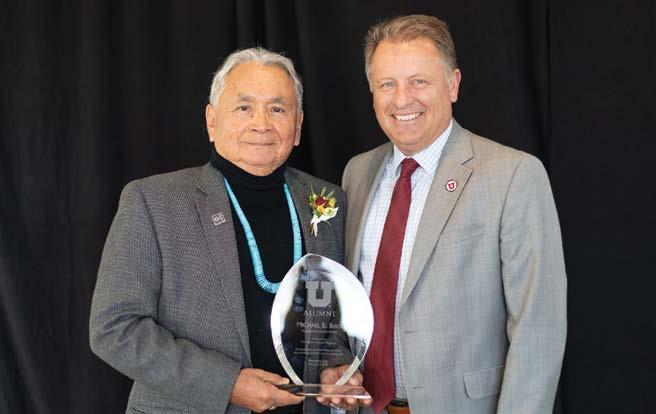
Distinguished Service Award: Margie & Dan Edwards
Margie Egbert Edwards (MSW ’62, PhD ’76) and Daniel Edwards (MSW ’65, DSW ’76) are both emeritus professors of social work. Together, they helped establish the American Indian Social Work Career Training Program at the U in 1970. In December 2011, the couple established the E. Daniel and Margie Egbert Edwards Endowed Scholarship Fund in the College of Social Work in an effort to support American Indian students for many years to come. Dr. Margie Edwards’ professional career in social work began with the Jordan School District in Salt Lake City, after which she worked with the Gila River Pima Tribe in Sacaton, Arizona. Dr. Dan Edwards worked for over 40 years with the College of Social Work and the Division of Ethnic Studies. He also directed the American Indian Social Work Career Training Program and the American Indian Ethnic Studies Program, and taught courses in both programs.

5SOCIAL WORK MATTERS SOCIAL WORK NEWS
Michael Bird receives the Distinguised Alumnus Award from President Taylor Randall
Margie and Dan Edwards receive the Distinguished Alumni Award from President Taylor Randall
NEW FACULTY
Online Assistant Professor (Lecturer) Jennifer Gervais joined the College of Social Work (CSW) in July. As a licensed independent clinical social worker, a University of Missouri-Columbia MSW grad uate, and a doctor of education, Dr. Gervais enjoys utilizing her 22 years of experience in children and adolescent mental health in her classes. She is excited to continue teaching in higher education here at the College.


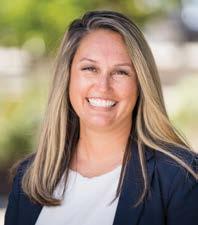
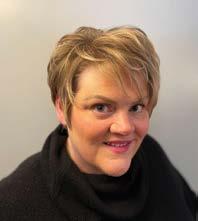
Research Assistant Professor Erika Marks, who joined the College in October of 2021, is an LCSW with over 20 years in the field. Prof. Marks has worked with trauma prevention and intervention, family therapy, and community-based treatment, and has strengthened training methodologies for the Utah Department of Child and Family Services, in conjunction with the College’s Social Research Institute. She looks forward to continuing work with the College in her new role.
Lindsay Gezinski, an associate professor and the new MSW Program director, returned to the College in July, after serving as a visiting scholar at the University of Amsterdam and Leiden University in the Netherlands. Dr. Gezinski researches gender-based violence, human trafficking, and sexual and reproductive justice and teaches macro social work. She is a Senior Research Scholar member with the Global Association of Human Trafficking Scholars.
Robert (R.C.) Morris, alumnus and assistant professor (clinical) in the St. George Distance MSW Program, began work with the College in August. Along with working as an LCSW, Dr. Morris focuses on suicide and training among law enforcement officers, and the suppression of support for the #MeToo movement and sexual assault reporting. He looks forward to teaching and working with the students in the College’s distance cohort.
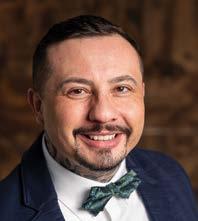
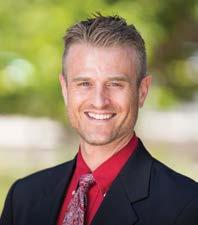
In July, Assistant Professor (Clinical) Ellie Goldberg, an MSW alumna and licensed clinical social worker (LCSW), joined the College. Drawing on her skills as a compassionate and trauma-in formed social worker, and her years of experience in educational, clinical, policy, and administrative settings, Prof. Goldberg is excited to empower and build capacity for students, social work agencies, and the College.
Licensed Clinical Social Worker
Clifton Uckerman joined the College in July as an assistant professor (lecturer). A graduate from both the College’s BSW and MSW programs, Prof. Uckerman worked as an evidence-based prac titioner with a focus on PTSD and trauma, additional and chemical dependency, and plant-based medication and medication-as sisted treatment. He looks forward to furthering the College’s commit ment to the Latinx community.
6 SOCIALWORK.UTAH.EDU FACULTY UPDATES

JUST BREATHE It’s been a rough couple of years. Take a moment right now to really breathe—just breathe. YOU’VE GOT THIS. Slowly inhale … … hold it for one, two, three … … slowly exhale … … inhale … … one, two, three … … exhale … … inhale … … one, two, three … … and exhale …
New Leadership Roles
THE BEGINNING OF 2022 BROUGHT SOME SIGNIFICANT CHANGES TO LEADERSHIP ROLES IN THE COLLEGE OF SOCIAL WORK.
The College of Social Work’s dean since 2017, Martell Teasley, was appointed the University’s interim senior vice president for academic affairs. In this role, he over sees academic colleges and programs, and works with the U’s president to set a stra tegic direction for student admission and retention. He looks forward to continuing to be a champion for social work students across campus.
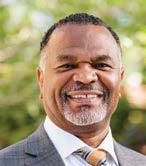
Initially hired as director of the College’s Social Research Institute, Philip Osteen was named interim associate dean for academic affairs in 2021. He was asked to serve as interim dean of the College of Social Work in January, after Dr. Teasley was appointed to his new role. (See more on page 10)
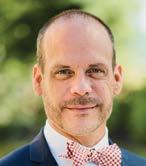
In January, BSW Program Director Jason Castillo transitioned to interim associate dean for academic affairs. In this new role, his goal is to ensure that students receive a rigorous, high-quality, and inclusive educational experience. He also wants to ensure that staff and faculty have the resources and support they need to successfully achieve the mission and goals of the College. Dr. Castillo is excited to be serving and supporting students, staff, and faculty in this new capacity.

Professor Joanna Bettmann Schaefer is delighted about her new role as special assistant to the dean. She will work closely with College leaders to provide manage ment training, as well as overseeing a range of staff processes, and providing resources and consultation to College supervisors.
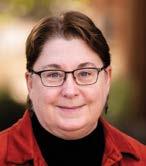
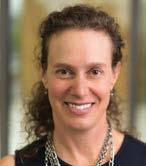

Jeremiah Jaggers, was named the interim BSW Program director in January. He believes that undergraduate social work education is the first step in social trans formation and is excited to be part of that process as he embraces his new role working with students.

Tiffany Baffour was named associate dean of graduate equity, diversity, and inclusion at the Graduate School. Dr. Baffour will provide leadership and direc tion to significantly advance the success of graduate and postdoctoral students. She previously served as director of the College’s MSW Program, and will continue to support the College through teaching, research, and service.
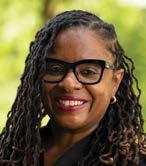
Associate Professor (Clinical) Emily Bleyl is the new director of MSW Field Education. She is looking forward to the challenge of fostering and supporting the professional, ethical, and skill development of future social workers in the context of applied practice, and continuing to build statewide partnerships, especially in underserved areas.
As the U’s new associate vice president for research integrity and compliance, Caren Frost has the opportunity to interact with research teams across the University’s health sciences and main campuses. Dr. Frost’s primary respon sibilities are to provide oversight to the units that manage regulatory compliance operations and promote research integrity activities. She also serves as the research integrity officer and institutional conflict of interest officer, engaging in work that connects academic research to state and federal offices.
8 SOCIALWORK.UTAH.EDU
FACULTY UPDATES
Kudos!
Tiffany Baffour, an associate dean in the Graduate School and associate professor in the College of Social Work, was the 2022 recipient of the Madam C.J. Walker Resource Award by the University of Utah Black Cultural Center. This prestigious award honors Dr. Baffour’s dedication to strengthening community-engaged learning experiences and opportunities tied to civic engagement, along with her work to enhance partnerships between the University and the surrounding community. Dr. Baffour was presented this award in February, at a celebration of Black History Month.
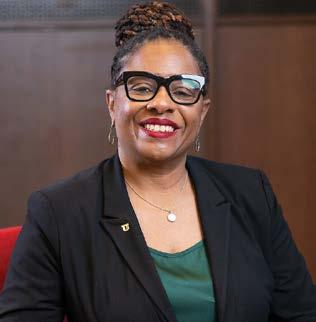
Director of MSW Field Education and Associate Professor (Clinical) Emily Bleyl was named Utah Social Worker of the Year by the National Association of Social Workers (NASW) Utah Chapter. Elise Hutchings, the former president of the NASW Utah Chapter Board of Directors and current continuing educa tion committee chair, nominated Prof. Bleyl for this honor, writing that her “experi ence and training as an educator, clini cian, advocate, and administrator impart broad-based understanding of the biopsy chosocial underpinnings fundamental to the social work profession, as well as the training and support needs of diverse students and colleagues.”
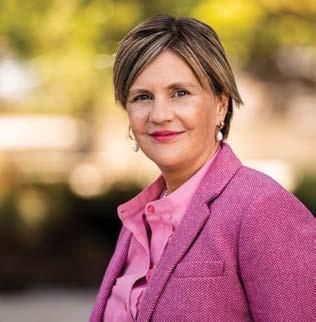
In March, Associate Dean for Research and Distinguished Professor Eric Garland’s work was featured in an article in Time Magazine. The article, How to Get Healthier Dopamine Highs, explores a number of methods to experience healthier dopamine highs—ones that will not lead to craving, crashing, and, ultimately, a downward spiral. The author, Matt Fuchs, includes meditation as one of these alternative dopamine high-producing methods, citing Dr. Garland’s research on MindfulnessOriented Recovery Enhancement (MORE). MORE focuses on meditation and mind fulness, which Dr. Garland explained raises dopamine levels without the spikes caused by drugs.

PICTURE THIS
In May, the Utah Criminal Justice Center hosted an on-campus training for community corrections employees on how to use the Women’s Risk Needs Assessment (WRNA). This validated, peer-reviewed assessment tool has been implemented in over 80 jurisdictions across the country, as well as in various jurisdictions globally.

9SOCIAL WORK MATTERS FACULTY UPDATES
Together,
Forward.

10 SOCIALWORK.UTAH.EDU Step
Step
The College of Social Work’s new interim dean started by literally throwing a dart at a map. He’d grown up in Memphis, Tennessee, thinking he’d become a medical doctor. He volunteered in healthcare settings and participated in health-focused high school clubs. With that end goal in mind, Interim Dean Osteen attended Memphis State University, where he earned a bachelor’s degree in biology while working a job in a community mental health agency. Then fate (and a dart) landed him in Denver, where he took a job as a case manager in a residential treatment agency … and as a novice disc jockey and line dance instructor in a local country-western bar.
“I didn’t know social work was a thing,” admitted Interim Dean Osteen of his younger self. But the agency where he worked offered to pay half his tuition if he earned a master’s in social work. After his first class, he thought, “I’m home. These are my people. This is who I am.” Having found the right fit, and with an eye on a doctoral degree, he followed up his MSW with a master’s in quantitative research methods, then earned PhDs in social work and statistics—all from the University of Denver.
Interim Dean Osteen accepted a faculty appoint ment at the University of Maryland, Baltimore, where he was awarded five Dean’s Teaching Awards before moving to Florida State University, where he worked for four years. But he missed the Mountain West.
In 2018, he moved to the University of Utah to lead the College of Social Work’s Social Research Institute. He was drawn by the leadership opportunities and supportive research infrastructure offered by the U; he knew faculty who worked here and had seen their impressive records of success. But the most compelling reason for him to come to Utah? “Social workers have great opportunities to make an impact here,” he said.
Early in his case manager career, one of Interim Dean Osteen’s clients—a young, single mother of two—died as a result of suicide. He felt completely unprepared. The experience was a transformational moment that shaped the trajectory of his career, and eventually focused his teaching, research, and activism. Utah, he noted, has one of the highest suicide rates in the U.S., particularly among youth. “I wanted to be
somewhere where my work could potentially change the lives, maybe even save the lives, of people. The need for suicide intervention and prevention here is huge, so this was the best place for me to go for what I wanted to accomplish.”
The state’s need for more social workers carries a similar sense of urgency. When Interim Dean Osteen assumed his new administrative role in January, he brought along big ideas for the College’s sustain able expansion. Critical to this expansion is online programming. Interim Dean Osteen noted that because the College offered an online BSW option and a hybrid technology-enhanced doctorate prior to the pandemic, and launched an online MSW in 2021, there was already institutional knowledge around the components needed for successful online and hybrid programs. These delivery methods, he explained, play a critical role in helping the College reach diverse and underserved populations in both rural and urban areas across the intermountain region.
Within the first few months after he was appointed the College’s chief administrator, Interim Dean Osteen had already set the wheels in motion for a fully online Spanish language MSW, an online version of the College’s Substance Use Disorder Treatment Training Certificate Program, and an expansion of the College’s decades-old Native American Indigenous Scholars Program. “We must be strategic in our expansion, ensuring we have the resources to meet the state’s needs with excellence,” said Interim Dean Osteen. This means adding additional faculty with expertise and experience in behavioral health and community engagement, as well as setting up more field place ments throughout the region, and securing additional scholarship funding to support students from a range of backgrounds. He hopes these initiatives will enable diverse individuals—some of whom might not have initially considered social work as a career path—to access the higher education and experience needed to help them provide more culturally responsive services to their respective communities.
Reflecting on his own story—his unlikely progres sion from unqualified line dance teacher to the head of a top-ranked college at an R1 university— Interim Dean Osteen noted, “Opportunity is everything.”
11SOCIAL WORK MATTERS
WHAT DOES COUNTRY-WESTERN LINE DANCING TEACH YOU ABOUT LIFE? “WITH PRACTICE, ANYONE CAN ACHIEVE SOMETHING,” SAID PHILIP OSTEEN, “REGARDLESS OF WHERE THEY STARTED.”
I’m home. These are my people. This is who I am.”
Aurthur L. Beeley
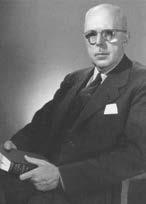
Black Panther and the Return of Beeley
When Black Panther first leapt into comic books in 1966, it was considered groundbreaking. The Marvel Comics character was the first Black superhero to appear in American comics. In February of 2019, when Marvel released the blockbuster Black Panther movie, it became a global phenomenon and one of the top 15 highest-grossing movies ever. For many, the cultural significance of this piece of the Marvel Cinematic Universe went far beyond what could be measured by numbers. “It takes you into a comic book world without having to have a white guide to that world. It’s an entire Black world with a Black point of view, a Black perspective,” said Peniel Joseph, the featured speaker at the College of Social Work’s revived Arthur L. Beeley Lecture, which was held in February in conjunction with Black History Month.
When it was established in 1961 in the midst of the Civil Rights Movement and named in honor of the College of Social Work’s founding dean, the annual Arthur L. Beeley Lecture welcomed notable experts
in the field of social work to address current matters of concern. “During a time when many social issues and injustices are exacerbated by the pandemic, we are pleased to reestablish the Arthur L. Beeley Lecture tradition,” said Interim Dean Philip Osteen.
Sponsored by MSW alumnus Charles S. Pohl, the first event in the rebooted series welcomed Dr. Joseph and a panel of scholars to discuss the representation of Black stories and experiences through comic books and movies. Dr. Joseph is a professor of history and public affairs, and the founding director of the Center for the Study of Race and Democracy at the University of Texas at Austin. He was joined by panelists Rachel Griffin, an associate professor in the U’s Department of Communication; Novotny Lawrence, an associate professor at Iowa State University’s Greenlee School of Journalism and Communication; and Paul White, and associate professor in the U’s Department of Psychology; as well as the panel moderator, Meligha Garfield, the director of the U’s Black Cultural Center.
U Hosts Social Work Doctoral Programs’ Annual Conference
In May, the University of Utah College of Social Work was honored to host the annual Group for the Advancement of Doctoral Education in Social Work (GADE) conference. GADE is an organization made up of over 100 social work PhD and DSW programs around the world, with the unifying goal of promoting excellence and rigor in social work doctoral education.
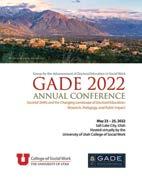
The two-day virtual conference, Societal Shifts and the Changing Landscape of Doctoral Education: Research, Pedagogy, and Public Impact, explored issues facing doctoral programs across the globe. Lauri Goldkind (Fordham University) delivered the opening plenary that explored the role of artificial intelligence in social work education and practice. A keynote panel discussion, moderated by Jerome Schiele (Morgan State University) featured Becci
Akin (University of Kansas), Samira Ali (University of Houston), Karina Gil (Our Lady of the Lake University), and Cindy Sousa (Bryn Mawr College) and explored innovations in implementing anti-racist and inclusive practices in doctoral education. The panel considered what major factors foster and facilitate racism in doctoral social work education and how racism can be reduced or eliminated, and inclusivity promoted. Keynote presenters Elizabeth Lightfoot (Arizona State University) and Cynthia Franklin (University of Texas at Austin) discussed trends in the social work academic job market, and how doctoral program directors can assist students in career preparation. Break-out sessions included wide-ranging topics from accreditation, recruitment, and program curriculum, to well-being post-COVID and work-life balance for doctoral students and academics.
12 SOCIALWORK.UTAH.EDU SOCIAL WORK NEWS
It’s an entire Black world with a Black point of view.”
STUDENT STORIES
Beyond Pronouns: Making Markers Match

One of MSW student Lauren Wilde’s (she/her) responsibili ties at her practicum—a dual placement at the Utah Pride Center and the University of Utah’s Adolescent Medicine and Primary Children’s Gender Management and Support Clinic (GeMS)—was helping transgender and nonbi nary folx figure out the process of changing their names and gender markers on their official legal documents. “Changing your name and markers can be very complicated,” she explained. “The process can be confusing and inaccessible. The Utah Courts website uses legal jargon and each legal document has their own process to make the changes once a petition is granted. It can very quickly become over whelming and there haven’t been many resources to support the trans/non-binary community in making these changes.”
Early in the process Ms. Wilde realized some systemization would help, but one concern kept emerging for her as she continued to work with clients who were changing their names and gender markers … what would clients next year do? GeMS hadn’t ever had a social work student complete a practicum at their clinic before, and there was no guarantee that next year someone would replace her. Were future clients going to be supported through this process?
Ms. Wilde decided to create something that would outlast her time with GeMS and continue to serve clients long after she’d graduated. She put together two guides that walk someone through the process, start to finish. She included downloadable forms, screenshots of official websites, example text written on forms, links to additional resources, and even a guide for identifying someone’s judicial court. (Both guides are available for free on the Utah Pride Center website.) “I wanted to create a full step-by-step aid that included as much of the process as possible,” Ms. Wilde explained. “Not everyone feels ready to tackle the entire process by themselves, so improving access to resources like this can make a big difference.”
It’s Macro and I Love It
BSW students Gabi Fritsch and Joe Kalipetsis both started their time in the College of Social Work thinking they would work with clients who were struggling with substance use disorders. That was the goal. Until both had practicum placements at Clean Slate Utah.
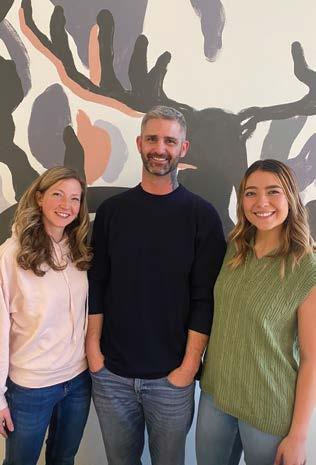
Clean Slate Utah is a nonprofit organization founded to spread awareness about Utah’s Clean Slate law. The law, passed by the Utah Legislature unani mously in 2019, is about simplifying the expungement of certain criminal records—something that affects more than one in four Utahns in some way. These criminal records create a number of barriers, including access to securing housing, ability to find employment, educational access, professional licensure, and more.
Noella Sudbury, the primary author of Utah’s Clean Slate bill and founder of Clean Slate Utah, explained the purpose of the bill was to create more opportu nities for Utahns. “We have this costly, complicated, difficult process that is a huge barrier to people moving forward,” she said. “If someone has remained crime free, done everything the court has asked them to do, and turned their life around, they should be allowed to move forward.”
Ms. Fritsch and Mr. Kalipetsis loved this work. “When I started in social work, I was sure I wanted to be a therapist,” said Ms. Fritsch. “But being with Clean Slate, I was able to see outside factors that were contributing to why people needed therapy in the first place, and to see how large scale some of the issues are. When Clean Slate went through, it cleared over 200,000 Utahns’ records. Being able to impact our state at that level is very fulfilling.”
Mr. Kalipetsis echoed this sentiment. “Making a differ ence on an individual level is very rewarding. It’s personal. But the macro level—seeing how many people are being affected by your work—wow.” He continued, “I’ve really enjoyed macro work in ways I didn’t think I would.”
Founder of Clean Slate Utah Noella Sudbury, with BSW students Joe Kalipetsis and Gabi Fritsch.
13SOCIAL WORK MATTERS SOCIAL WORK NEWS
We have the data, but we need to be talking to more people across stakeholder groups to understand what works and why. “
Conversations & Coalitions forImproved Implementation
Many researchers spend significant time and energy proving that the problem they’re studying is actually a problem, and/or trying to determine if the method they’ve found to address the problem is a valid way of addressing that issue. That’s not the case for Elizabeth Siantz, assistant professor in the College of Social Work. According to her—and the body of research she works within—many of the prob lems she’s studying already have promising solutions. Researchers already know that people with mental and behavioral health needs often have very serious co-occurring physical health issues (in fact, people with mental illness live 25 years less, compared to the general population). Researchers already know these disparities are even more pronounced in racial and ethnic minority communities. And they already know of effective solutions. “There are things on the shelf that we know can address these health inequities,” said Dr. Siantz. “Many evidence-based practices already exist; organizations just need support to get them going.”
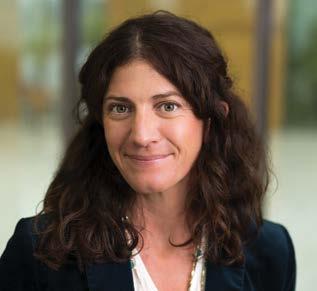
For these reasons, Dr. Siantz was drawn to the field of implementation science—the scientific study of methods that promote the uptake of research and evidence-based practices. The goals of her work are to help researchers and health service professionals translate scientific knowledge into routine use and to understand the challenges and successes in delivering new services. She is trained in and uses statistical methods (including social network analysis), but she finds qualitative and community-based methods can provide information about why interventions work and how organizations can be supported to deliver them. “We have the data, but we need to be talking to more people across stakeholder groups to understand what works and why. We are not having enough conversations with the people who are most affected.” Her approach is rooted in one of the most basic tenets of social work: “You have to start with where people are—not where you want them to be.”
Dr. Siantz was accepted into the 2022 cohort of the University of Utah’s Vice President’s Clinical & Translational Research Scholars Program (VPCAT)— the first social work faculty member to be accepted into the program. The VPCAT program prepares scholars, and in particular, junior faculty, to be competitive for federal research grants on clinical and translational research with astounding success. Dr. Siantz intends to run an implementation study of a chronic disease self-management program for people with mental illness who are receiving care in a primary care setting.
14 SOCIALWORK.UTAH.EDU
2022-2023
Season of Continuing Education
Social workers are faced with challenges great and small every day. It is easy to feel defeated by the scope of these issues. But through the College of Social Work’s two lecture series, we seek to make progress in addressing some of the greatest and most pressing issues facing society today through presentations sharing innovative ideas, creative approaches, and cuttingedge research.
The Grand Challenges for Social Work is an initiative of the American Academy of Social Work and Social Welfare
Picturing Changing Perceptions of Place
(AASWSW), which seeks to inspire collab oration and research-based dialogue to address 13 of our toughest social issues. Focused on evidence-based solutions to some of the Grand Challenges, events during this academic year will include presentations on:
• The history of racism, bias, and barriers against American Indian, Alaskan Native, and Native Hawaiian commu nities and the connection to current health and wellbeing.
• Trauma-informed healing for survivors of human trafficking.
• Preventing school shootings by focusing on supporting the social and emotional needs of students.
• Racial disparities in infant mortality and the impact of stress on birth outcomes and postpartum health.
The Social Work Beyond the Classroom series highlights College of Social Work faculty scholarship and activi ties. This year’s presentations will include:
• Dr. Jason Castillo and Dr. Caren Frost on improving education and applied experience for substance use disorder counseling students.
• Dr. Chris Cambron on the socio economic disparities of smoking cessation.
To keep up to date on these events and all College of Social Work events, please visit socialwork.utah.edu/events.
More than two years after the beginning of a global pandemic, it’s still difficult to think through all the changes COVID brought with it. There isn’t a sphere of society or a point in the lifespan that wasn’t altered. Sarah Canham, associate professor in both the College of Social Work and College of Architecture + Planning, and Valerie Greer, assistant professor in the College of Architecture + Planning, are studying a small slice of this. Dr. Greer and Dr. Canham’s pilot study was meant to learn more about how living through a pandemic, along with the accompanying restrictions and changing life parameters, was affecting older adults’ ability to age well in the right place. The study utilized photovoice, a participatory, visual research methodology where study participants take photos to document research themes.
Both Dr. Canham and Dr. Greer were enthusiastic about the insight this methodology brought to the project. Dr. Canham explained, “Our participants went off with cameras and took time to think through what they wanted to share about their perceptions of what aging in the right place means to them. It wasn’t what we as researchers think they should think, or what we as policy makers, or what we as people who inform policy think will be important. It was literally hearing and then being able to see what’s of importance to the older adults who participated in the study. That is extremely valuable.”
The team also considered who wasn’t seen in their data. “The global pandemic response really highlighted the disproportionate impact that access to finan cial resources, health resources, digital literacy, and digital access has on different groups of people—the ways these challenges are distinct but also the ways they can compound,” said Dr. Greer. “Understanding our data in the constellation of other studies around the pandemic really underscores the need to be able to empower voices that aren’t as heard or aren’t as represented, particularly from firsthand narratives.”
Research partners
Dr. Sarah Canham, Dr. Valerie Greer, and Dr. Andy Hong.

15SOCIAL WORK MATTERS The
SOCIAL WORK NEWS
Julie Watkins Keeps Making aDifference
Julia (Julie) M. Watkins crossed the country and circled the globe, putting her social work degrees to work as a clini cian, educator, administrator, consultant, and philanthropist. She reflected on her journey during a virtual interview from her home office in Maine, against the backdrop of vibrant art that included a giraffe and an elephant in kaleidoscopic colors— images that delightfully mirror the sense of adventure and joy with which she describes her illustrious career.
Dr. Watkins believes the seeds of her work were planted in her childhood in Ogden, Utah. “It’s the old cliché,” she says. “I was the oldest of five kids, so there were lots of things I did that were ‘helpful’ to the family.” Dr. Watkins added, “My parents had really high expectations, which included going to college.” Upon entering the University of Utah, armed with an interest in making a difference, Dr. Watkins found her path forward after taking some undergraduate social work classes with professors who were also teaching
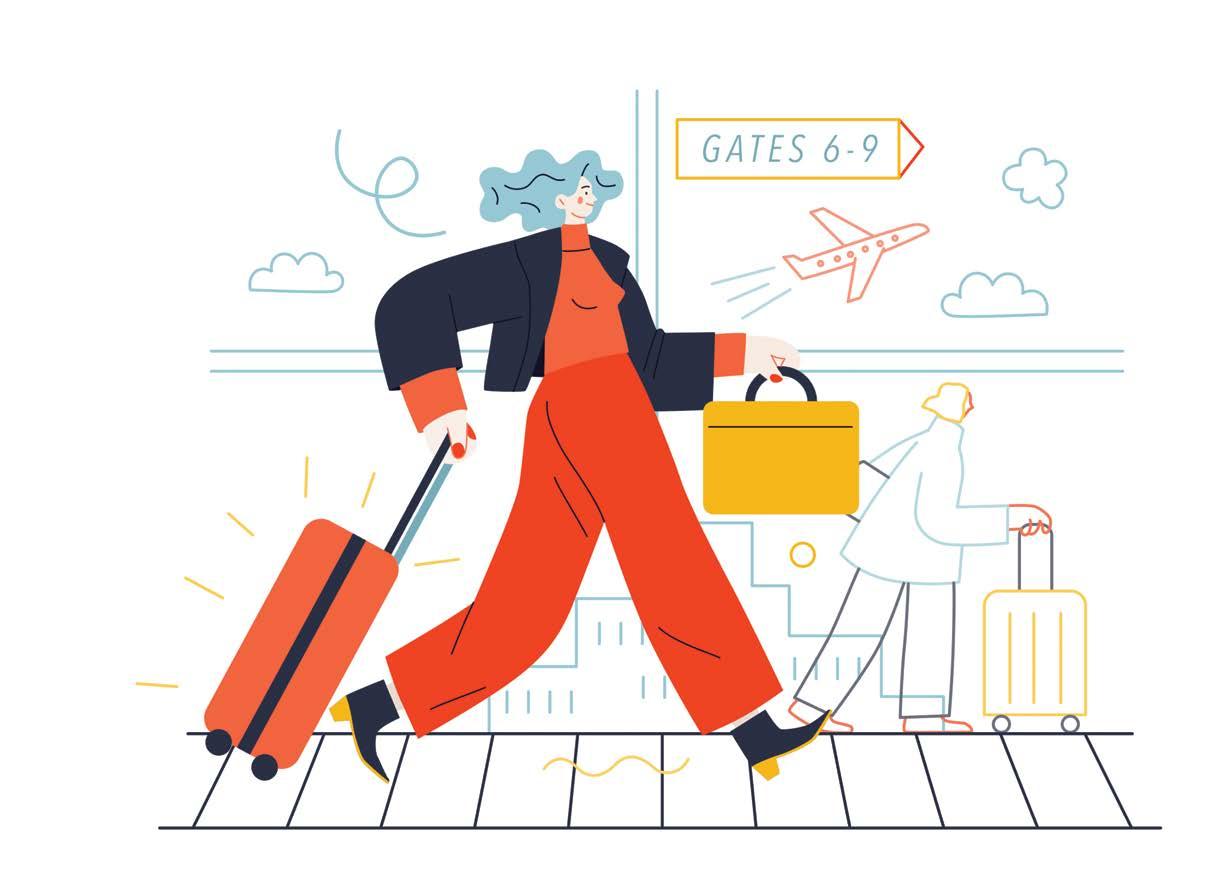
16 SOCIALWORK.UTAH.EDU
in the master’s program. She ultimately earned her BS in sociology, followed in quick succession by her MSW degree and a PhD in educational psychology.
“What really, really took hold was the flexibility the [MSW] degree provided within a lot of different settings,” explained Dr. Watkins. “Underlying the flex ibility, there was a base in ethics, in leadership, in critical thinking, asking the right questions, seeking solutions, and identifying the challenges.” She noted there was also an acknowledgement in the profes sion—not a deep understanding yet, but a growing awareness—of the importance of cultural competence. These things added up for Dr. Watkins. “As I think back, they provided real preparation for what I would be doing the rest of my life.”

Dr. Watkins launched her career at Salt Lake’s Neighborhood House, and followed this community center experience with clinical work at the Children’s Center. She went on to a distinguished career at the University of Maine as a faculty member and interim vice president for academic affairs, followed by a bold 10-year tenure at the helm of the American University of Bulgaria, and a steady hand in lead ership at the Washington D.C. office of the Council on Social Work Education.
Did she envision this globetrotting, communi ty-to-clinician-to-leader career path when she set out to help people? “Yes and no. I had my eye on opportu nities and I was fairly confident of my skill set—that I could do any number of things.” Dr. Watkins, now retired, candidly admits, “There were some failures!” But she tended to see a slightly open door in each opportunity—and because of her education and the confidence it instilled, she said, “I could push that door open, and create new experiences.”

Dr. Watkins believes these richly varied experiences helped her focus on what she feels really matters, which brings her full circle to the message she learned as a child: Make a difference in people’s lives. This idea provided the impetus for Dr. Watkins, along with husband Dr. Dennis A. Watkins, to create the Julia M. Watkins Endowed Scholarship.
The scholarship, awarded for the first time this academic year, is one of their many ways of “paying it forward” to help create opportunities for social work students—opportunities that tell students someone believes in them and has confidence in them. Dr. Watkins observes, “Every student is faced, as we all are, with unforeseen challenges. The most important thing is, if you’re starting down this path, finish.” She encourages students to use every resource they can to complete their degrees. Knowing just how important it is to have that solid base, she feels “incredibly privi leged” to provide funds that will help students achieve their academic dreams.
Dr. Watkins also appreciates the challenges that lie ahead for social workers, admitting she would be ill prepared today to deal with the traumas in Southeast Europe, particularly for women. “Events happening in Ukraine are bringing back the horrors of the early 1990s in Bosnia-Herzegovina, Serbia, and Kosovo. The women who endured those times are now reaching out to social work educators in Ukraine, offering their lived experience and help. It’s very powerful.” In the face of these tragedies, Dr. Watkins marvels at the phenomenal ability social workers have to address a vast array of human struggles. “Again, it speaks to the flexibility social work education gives you. You’re not tied to any particular prescription, but you’ve developed the thinking and problem-solving skills to move ahead.”
These global events also speak to the importance of connections across the profession. As someone who has guided clients, navigated all levels of academia, and rescued organizations during her career, Dr. Watkins offers this advice: “As you’re going along this path, establish and maintain networks, friends, and colleagues. It’s easy to let that slide, but over my lifetime, if there’s wisdom I’ve gained, that would be a piece of it. It’s really, really important.”

17SOCIAL WORK MATTERS
Donor Honor Roll
WE GRATEFULLY ACKNOWLEDGE THE GENEROSITY OF DONORS WHO GAVE JULY 1, 2021 – JUNE 30, 2022.
FOUNDATIONS & CORPORATIONS
$25,000 or more
The Callon Family Trust Intermountain Healthcare Dennis A. and Julia M. Watkins Foundation
$10,000-$24,999
The Church of Jesus Christ of Latter-day Saints Foundation
The Sorenson Legacy Foundation
$1,000-$9,999
The Mary Alice & Bennett Brown Foundation Inc.
Herbert I. & Elsa B. Michael Foundation
INDIVIDUALS
$25,000 or more
Colin W. Brown
Dan and Gisella Chace
Roger M. and Mary F. Lowe
$10,000-$24,999
Kenneth and Kelle Okazaki
Christine Pugmire Skidmore and Lee S.* Skidmore
John R. and Cheryl Thackeray John Williams and Robin Arnold Williams, DSW*
$2,500-$9,999
Thomas* and Ruth Gallagher Norma J. Harris Gary and Kathy Luke
Katherine M. Mason
Kenzo Okazaki
David and Anna Thackeray Milton H. and Sandra W. Thackeray
Keith M.* and Susan R. Warshaw
Janet Spafford Wilson and Del Wilson
$1,000-$2,499
Debra S. Daniels
Jon and Judie Davis
E. Daniel Edwards and Margie Edwards
Lisa E.M. and Deno G. Himonas
Gloria Jacobs Johnson and Robert A. Johnson
David B. and Lisa Goldstein Kieda
Helane B. and David E. Leta Hank and Gail J. Liese
C. Kai Medina-Martinez
D’Arcy Dixon Pignanelli and Frank R. Pignanelli Charles Pohl
Donald L. and Sylvia Schmid
William and Janine* Smith
Martell L. and Bonita Teasley
John Fleming and Susan L. Thomas
Raleigh G. and Patricia J. Wills
$250-$999
Cora M. and Harold Adams
Nancy and Lewis Baker James and Aubrey Bullough
Lindy Christensen Caren J. Frost Cheston and Melissa Mauchley Shawn and Mary Jo McMillen Walter and Susan Notter
Philip Osteen
Shannon Price Roger G. and Susan Santala
Mary Selecky
Betty Spencer
Blair Hodson and Amy Sorenson
J. Garr Vincent and Janet*
Vincent
Georgia Wagniere
Don G. and Megan P. Wardell
Koong Y. Yang & Janet Yang Living Trust
$100-$249
Patricia Allen*
James and Shannon Andersen
Carolyn Andersen
Gail Baccheschi
Glenn Bailey
Gene and Marghi Barton
Troy and Ame Bennett
John and Amanda Bogart Jason and Danielle Castillo
Janet Cazier
Megan and Jimmy Chepkwurui Gordon Daines and Geraldine Daines
Janet Davidson Robert and Lucy Deaton William and Sandra Descary Marylis Filipovich Lou Jean Flint Erika Fontana
Tamra Fullerton
James Gander, PhD* and Anita Gander
Ritvij Gautam and Priyanka Vasudevan
Christina Gringeri and Armando Solorzano
Erin Grover Anthony Guzman
Sonja Hanson Garth and Carmen Harrison Robyn Heckman Charles Hoy-Ellis Mark and Kimberly Jensen
Marian Knudson and Kenrick Bontoft
Adam Hanley and Julia Kronholz Dr. Stayner and Suzanne Landward Joe Larsen
Susan and Donald Lewon Margene Luke Brad and Stacy Lundahl Rebecca and Scott Mabe Chad and Brook McDonald Joshua Michnowski Rose Miller Jennifer Nozawa Allison O’Connor Aaron and Katherine Orlowski Allen J. Proctor Richard and Jan Pugh Shirley C. and Thomas J. Rossa Joanna Bettmann Schaefer and Peter Schaefer
Darlene and Michael Schultz Tony and Kathleen Strelich Tomokazu and Tetsuko Suzuki Kristina and Scott Swickard David and Carol Tibbs Clifton Uckerman
Megan Waters Richard and Rebecca Worst
$1-$99
Alison and John Ackerman Christine Ackmann Desirae Alires Kelli Allen Meghan and Brandon Andersen Troy Andersen and Kathleen Miller-Andersen Sumiko Anderson Anonymous Donor Barry and Barbara Bank Stephanie Bank
Tara Romney Barber and Bill Barber Kristina Bart Tamber Snarr-Beesley and Jordan Beesley
Laura Bell
Greg Pachner and Sara Benedict Michael and Melanie Bradley Emily Breen
Jeffrey and Janet Breen David and Loraine Bunker Bob Burgess Sara Callister
Christopher Cambron Terrell Campbell Sarah Canham Deborah Carr Geraldine Carruth Timothy and Claudia Clark Michel Coconis Luciano Santa Cruz Kathryn Curtis
Betty Lynn and Jerold* Davis Krystle Dean Rachael Debenham Jack Dunn
Emogene Hennick-Dunn Zachary Duvall Steven Edwards
Lars Eggertsen
Donald and Loretta Enders
Bethany Epstein
James and Rebecca Fairbanks
Veronica Fajardo
Mary Beth Vogel-Ferguson and Steve Ferguson
Edward Spolarich and Roseanne Fong
Patricia Galbraith Eric and Lisa Garland Christian and Laci Gentry Sarah George and Richard Ford Abigail Gonzalez Lisa Hansen
Basil Harb and Rachel Hayes-Harb
Yasu Harper Hannah Dubose-Harting Aaron Harvey
Joelle Hazzard
Delva and Wolfgang Hommes Rodney and Mary Hopkins Elise and Paul* Hutchings Neil and Jennifer Hymas Jeffrey Jensen
Safia and Lester Keller
Paul Ketzle and Marcia Dibble Richard Landward and Amber Roderick-Landward
Charla Leary Jeanne Lee
Brooke Lesley
Alysse Loomis Anna Lopez
Sonya Martinez-Ortiz and Ernesto Ortiz Marnie Maxwell Matthew McDermott
Holly Meckley
Virginia Memmott Helen Mertz
Kristin Midyett Kelly and Gina Millard Gerry and Kathleen Miller
Kimberly Millikan Julia Mills
Meeyoung Min Heather Moulton
Dan Nebeker and Cortney Nebeker
Diane Necastro
J. Dena Ned Jesse and Melinda Newsome David Ornegri
Stephanie Dawson Pack and Reginald Pack Morriss and Donna Partee Megan Perkins
18 SOCIALWORK.UTAH.EDU DONORS
Joanne Yaffe F. Louis Yeates
Spencer and Brooke Pohlman
Jane Pond
Lindsay Rencher
Robert and Lynette Rich
Maria Richmond
Michael and Shauna Robbins
Kat Rolfson
Ray and Patricia Ross
Emily Salisbury
Gaben Sanchez
Cynthia Sanders
Christian Sarver and Stephen Smith
Pamela Seager
Janet Shiozawa
Elizabeth Siantz
Naomi Silverstone
Stephanie Sinju
Craig and Marianne Skousen
Rebecca Smith
Kevin and Lenore Smith
Sandra Smith
Cagney Smullin
Kristen Stowell and Eric Wiseman
Richard Sullivan
Michael and Krissie Summerhays
Jamie Tanner
Brenan and Marlena Thompson
Barbara Thompson
Paul and Ranee Thorpe
Carmencita Totua

Bradley and Lacey Trump
Reese Vedder
Sheila Walsh-McDonald and Gregory McDonald
Hugh Watt
Peggy Weber
Diane Weeks
Janet Welling
Shelley White and Kathryn Stockton
Richard and Cheryl Willey
April Wilson
David and Kelly Winslow
Laura Woolf
Erin and Ben Worwood
Jennifer Young Tammy Zundel
*Deceased
Our goal is to express our gratitude to each of our investors with accuracy. Despite our best efforts, however, errors sometimes occur. In that event, please notify our Development Office by calling (801) 587-8387 or email lisa.himonas@socwk.utah.edu.
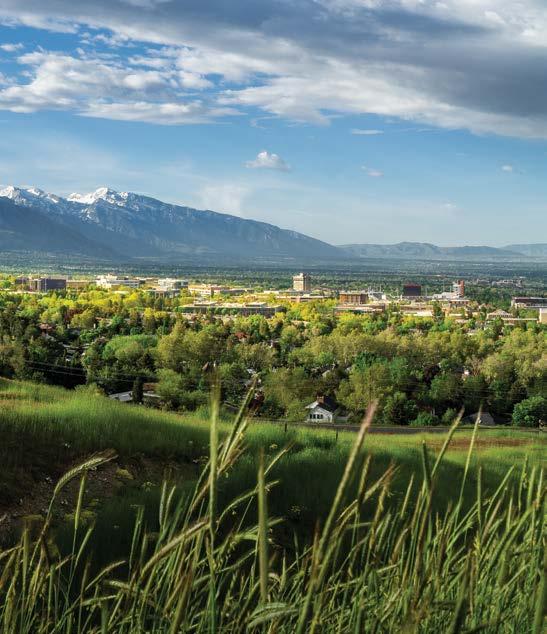
Message to Our Donors
Putting the Pieces Together
Thank you for being part of the College of Social Work’s donor roll this past year! We often emphasize that all gifts matter and that your combined dollars are powerful. There is great truth in these words. But, as Henrik Ibsen observed, sometimes a picture is worth a thousand words. So, consider this notion—each of us listed above is a puzzle piece. When the shape, size, and swirl of colors that represent our respective “pieces” are fitted with all the others, an amazing image appears. It is an image that helps build our story while telling a bit of yours, too. Together we create a picture of what we’re collectively working to accomplish—for today’s students and tomorrow’s, for our community, for the profession of social work and what it means to us.
Thank you again for your uniquely shaped and tinted gift that created our 2022 puzzle masterpiece. We couldn’t have done it without you.
—Lisa Himonas, Assistant Dean for Development
19SOCIAL WORK MATTERS
DONORS
Nonprofit Organization
U.S. Postage PAID Salt Lake City, Utah Permit Number 1529
395 South 1500 East, Room 101 Salt Lake City, Utah 84112-0260
TENURE TRACK & CAREER TRACK FACULTY OPPORTUNITIES
The University of Utah College of Social Work is seeking multiple enthusiastic tenure-track and career-track faculty candidates to contribute to the strategic growth of the College. The University of Utah recognizes that diverse faculty and staff benefit and enrich the educational experiences of the entire campus and greater community. Therefore, individuals from historically underrepresented groups are especially encouraged to apply.
Open faculty opportunities include:
• Tenure Track Assistant/Associate Professor
• Career Line Director of BSW Field Education
• Career Line Assistant Professor (Lecturer)
• Career Line (Online) Assistant Professor (Lecturer)
Visit our website at socialwork.utah.edu/imagine-more to learn more about these positions, our institution, and our state.

